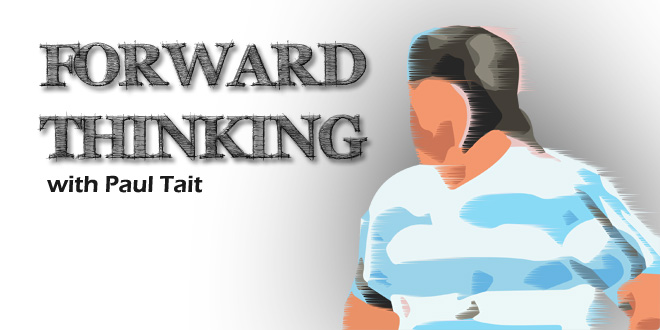Rugby has expanded tremendously from the limited base that existed prior to 1987. The IRB’s change to be called World Rugby is a significant part of modernizing the brand to give it a more credible appearance and one which is far more commercially sound. Next up is the power structure of World Rugby which retains non-democratic decision-making power from the amateur era.
Is decision making based on democracy?
No. There are a total of 121 unions listed by World Rugby of which 102 are included in the official World Rankings and the remainder are associate members. Despite the vast number of countries playing rugby around the world the number of unions who have voting power is very limited. The World Rugby Council consists of a total of twenty-eight votes, two of which are held by the World Rugby Chairman and Vice-Chairman.
The twenty-six remaining votes are possessed by World Rugby member nations or regional authorities. Not only does the distribution of power see a minority given the exclusive right to vote but the twenty-six votes are concentrated in the hands of as few as twelve World Rugby member unions.
So who gets to vote?
The six World Rugby defined regions each carry one vote. As such Rugby Afrique / Africa, Asia Rugby, North America Caribbean Rugby Association (NACRA), Rugby Europe, Federation of Oceania Rugby Union (FORU) and Sudamericana Rugby all have equal power on the World Rugby Council. The remaining votes are distributed between World Rugby member unions who are commonly considered as being traditional powers of the sport. All have appeared in every Rugby World Cup.
Do they each have one vote?
No. Argentina, Canada, Italy and Japan each do have one vote but the remaining nations on the council have two. In other words all of Australia, England, France, Ireland, New Zealand, Scotland, South Africa and Wales each have double the decision making power of Argentina, Canada, Italy and Japan. In terms of power this means that over 60%, or a direct majority, of votes are held by eight member nations.
Is it based on playing numbers per nation?
No. World Rugby numbers in 2014 listed Wales as having 64,114 rugby players but Canada had 129,131 players and the USA 1.4 million. Both Argentina and Fiji were listed as having 127,214 and 156,140 respectively and both also have larger player numbers than Wales. In fact according to World Rugby’s own data the USA has more players than France, Ireland, New Zealand, Scotland, South Africa and Wales combined. Put differently there is absolutely no correlation between voting power and the number of people playing rugby within am World Rugby defined territory.
Is it based on playing at all Rugby World Cups?
No. Although both Fiji and the USA missed out on qualifying for Rugby World Cup 1995 this is not the reason for these countries lacking a vote. In addition to the above mentioned countries there is one more which has appeared at every Rugby World Cup but does not have a vote – Romania. The Eastern European country was invited to Rugby World Cup 1987 and has subsequently qualified for every Rugby World Cup, including 2015.
Is it therefore based on performances at Rugby World Cups?
No. Romania has a better ratio of matches played to victories than Japan. Romania won one match at each of the 1987, 1991, 1999, 2003 and 2007 World Cups defeating Zimbabwe, Fiji, USA, Namibia and Portugal. Japan, in contrast, defeated Zimbabwe at Rugby World Cup 1991 and competed to draws against Canada in 2007 and 2011. All other matches have been losses.
A second example of note is that of Ireland carrying twice the power of Argentina despite Ireland having never reached the Semi Finals of a Rugby World Cup. Unlike the Irish Argentina did so in 2007, finishing third. Moreover Scotland’s best performance was fourth in 1991, a World Cup which did not feature South Africa.
Canada’s best return at a World Cup was also in 1991 when the North Americans reached the Quarter Finals. The same is true of Fiji and Samoa who have both appeared at the Quarter Finals stage of two Rugby World Cups. Neither country has a vote on the World Rugby Council.
Is it based on population?
No. Despite Fiji and Samoa both having small populations this is not the reason for neither having voting power. If population were to indeed be a part of the equation then the USA would certainly have at least one vote as would a number of others. Romania has a population of 21.79 million which is more than the combined populations of Ireland, New Zealand, Scotland and Wales. Moreover Argentina has a larger population than these four and Australia combined.
Is it based on World Rugby members per region?
No. As mentioned earlier all regions have one vote and when considering the total number of votes per region there is no correlation whatsoever between voting distribution per region and members per region. Oceania has twelve World Rugby members compared to Asia which has sixteen. On the Council Oceania carries five votes – Oceania, Australia and New Zealand while Asia has two – Asia and Japan.
Is it based on Tier status?
No. The World Rugby defined Tier One members are the same unions with two votes each in addition to Argentina and Italy. If tier status were the defining characteristic then both Argentina and Italy would have two votes. In addition Canada and Japan are tier two nations with one vote each but there are other tier two members who cannot vote.
What is it based on then?
History. The unions or Ireland, Scotland and Wales created World Rugby, known as the International Rugby Football Board, in 1886 and England joined in 1890. Next to join and be allocated votes were South Africa, Australia and New Zealand in 1948 and France did so in 1978. Argentina, Canada, Italy and Japan were admitted in 1991, after the establishment of the Rugby World Cup which was first played in 1987.
Changes over time have seen the eight founding members, including France, coming to have two votes each. The same unions are those who have hosted every Rugby World Cup from 1987-2015. Japan 2019 represents the first change and there will be more. The rebranding of the IRB to become ‘World Rugby’ is a strong suggestion that the power structure and decisions are to be changed.
The existing structure is therefore extremely outdated and cannot survive. The extent of the controversy is such that the organization itself admits it needs alteration. In April 2013 World Rugby Chief Executive Brett Gosper said they looking at giving both Argentina and Italy a second vote.
Some two years on the case for rethinking the structure continues to grow. Argentina’s win in Durban this past Saturday was a reminder that the sport is far from restricted to the founding members. Indeed when Los Pumas are playing well the global game is the winner. Having the same teams dominating is not in the interests of the greater good now or in the future.
Rugby must break out of the shackles of the past and embrace the future.
 Americas Rugby News Rugby news from across the Americas!
Americas Rugby News Rugby news from across the Americas!




